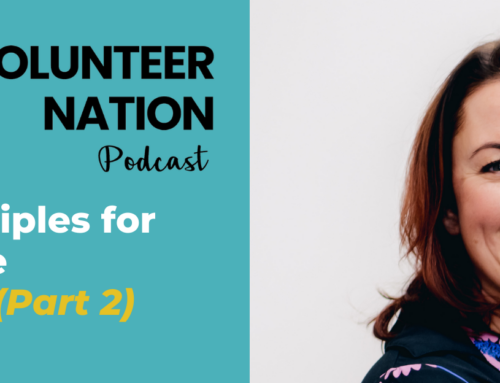 3 Things You Need to Learn From Volunteer Screening Interviews
3 Things You Need to Learn From Volunteer Screening Interviews
Some people think of volunteer screening interviews as a way to keep people out of your organization, to weed out the folks that might be a hassle, not get the work done, or perhaps be some kind of threat to the organization. Many think of them primarily as an exercise in risk management.
That’s only partially true. Interviews can also be an opportunity to more deeply understand the motivations of your applicant, which can help you with volunteer retention down the road.
Volunteer Screening Interviews Are a Conversation
Interviews with prospective volunteers are the first step in developing a potentially rich partnership. They’re not unlike a first date — you’re there to see who that person is about, to share what you’re about, and to see if there’s anything in common. If you don’t think so (or you see those dreaded red flags your mother warned you about), you call it a day, no harm no foul. If they do work out, hopefully, that first date will lead to true love!
As such these interviews are a conversation, which means they are two-way. They shouldn’t be all about you and your needs. Spend 50% of the time listening.
Three Helpful Things to Learn from Volunteer Applicants
1) What are the causes they support?
This will help you better understand their passions. If they don’t mention anything that closely resembles your mission, you may want to consider helping them find a better match elsewhere — sort of like your friend who dated the nice guy, not right for her, but would you like him?
Volunteers who feel close emotional connections to the organization’s mission are more likely to become deeply engaged and stay. These are the folks you want to attract. And, there’s nothing wrong with playing matchmaker for another organization — it means you’re a good community partner, and maybe they’ll do the same for you someday.
2) What are their “Must Have’s” and “No-No’s”?
There’s nothing more frustrating than, as a volunteer, being asked to do something you’ve specifically stated makes you uncomfortable. Volunteers are not being paid, therefore, they get to have a say in what they’re assigned. It is their right, and they get grumpy when pushed. Believe me. I’ve experienced it myself.
Make sure you know your volunteers’ taboos upfront. It doesn’t mean they won’t evolve over time, but don’t count on it. If most of what you need to be done involve what the prospective volunteer doesn’t want to do, you need to be upfront about it. It may not be the best fit for them.
By the same token, you also want to know what brings them the most joy. Ask them directly — “If this volunteer experience was a perfect “10”, what would it look like in your eyes? What would you be doing? What would be happening?” Pay attention to the tasks they describe themselves doing — these are likely the ones they enjoy and should be assigned. Also, this conversation will likely shed some light on what motivated them in the first place and give you some ideas about how to thank them for their service. Keep those notes — you’ll need them later when you’re planning your volunteer recognition activities.
One word about flexibility — It’s up to you to be more flexible than the volunteers. So, be creative about ways you can accommodate their talents. Everyone will not be an absolutely perfect fit, in terms of their “will” and skills. You need to plan for this. One way is to design your volunteer work around teams that share the workload. Then, volunteers can work together to divvy up the tasks that make sense to each team member.
3) Have they met your minimum qualifications?
Some volunteer gigs require certain skills, like using the computer. Establish your core requirements, and don’t be shy about communicating them. If a volunteer doesn’t meet the minimum qualifications, and can’t learn them easily, they may get frustrated and lose interest in the end. This wastes their time and yours.
If they will be participating in training, be honest about what it will take to learn the skills they will be using. Also, always be willing to help them find something that is a better fit, even at another organization.
Another word about flexibility — Try to design your volunteer program around a broad range of activities, from “menial” to highly-skilled.
By doing so, you will increase the opportunities for volunteers, of all skill levels, to support your organization. Also, just because someone has a skill, doesn’t mean they want to put it to use as a volunteer. For example, an executive who manages stressful corporate mergers all week long, may not be interested in developing partnerships for your organization. They may be more interested in something simple and relaxing, like doing data entry. Honor that. And, the only way you’ll know is by asking (see #2 above).
Make no mistake, volunteer interviews are also an important part of your risk management strategy. Volunteer applications, background checks, and reference checks are also a big help in determining if the applicant could prove risky to an organization.
But don’t forget, too, that your initial interview is a way to connect, heart to heart. They are a fantastic way to learn more about what will keep your volunteers happy and are a critical step in retaining the right volunteers for the right jobs.
What do you think must be asked in a volunteer screening interview? Contribute your favorite volunteer interview question, by clicking in the comments link below.







Leave A Comment